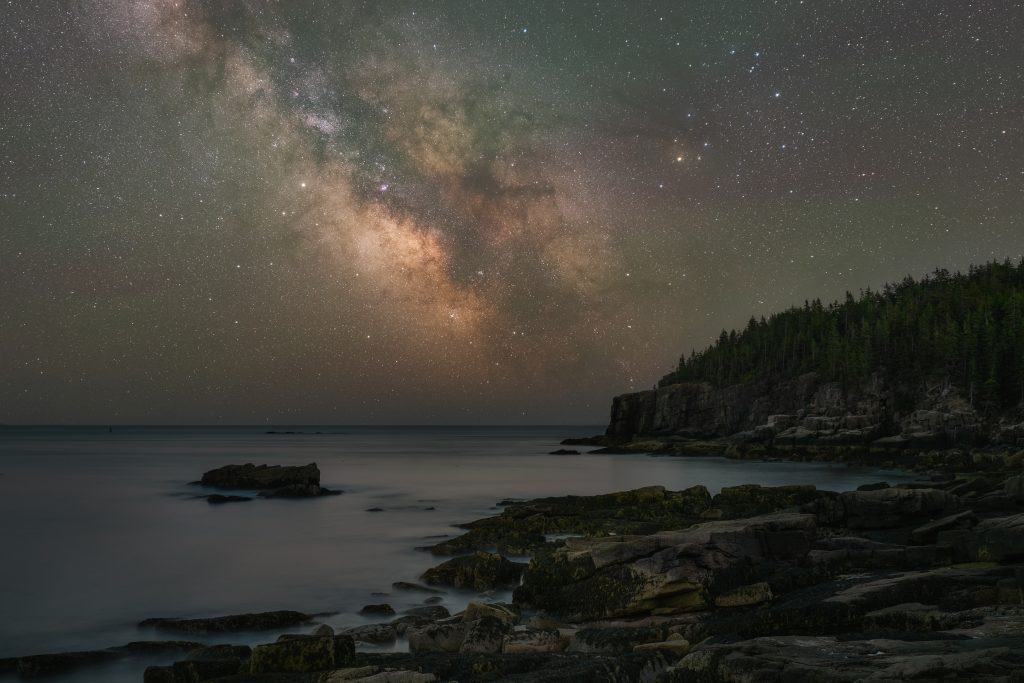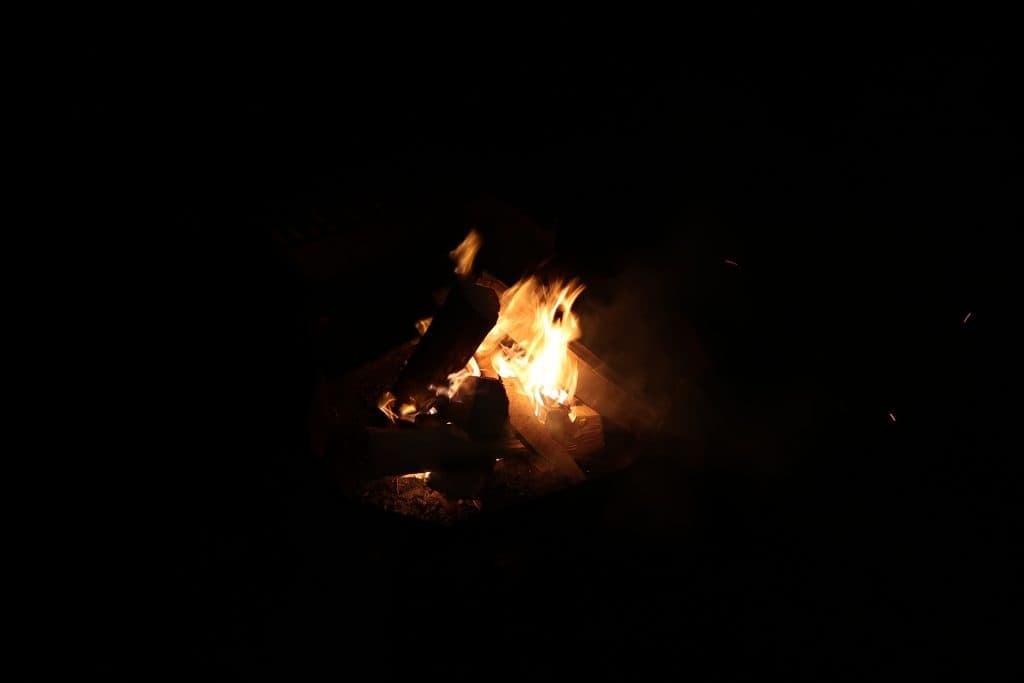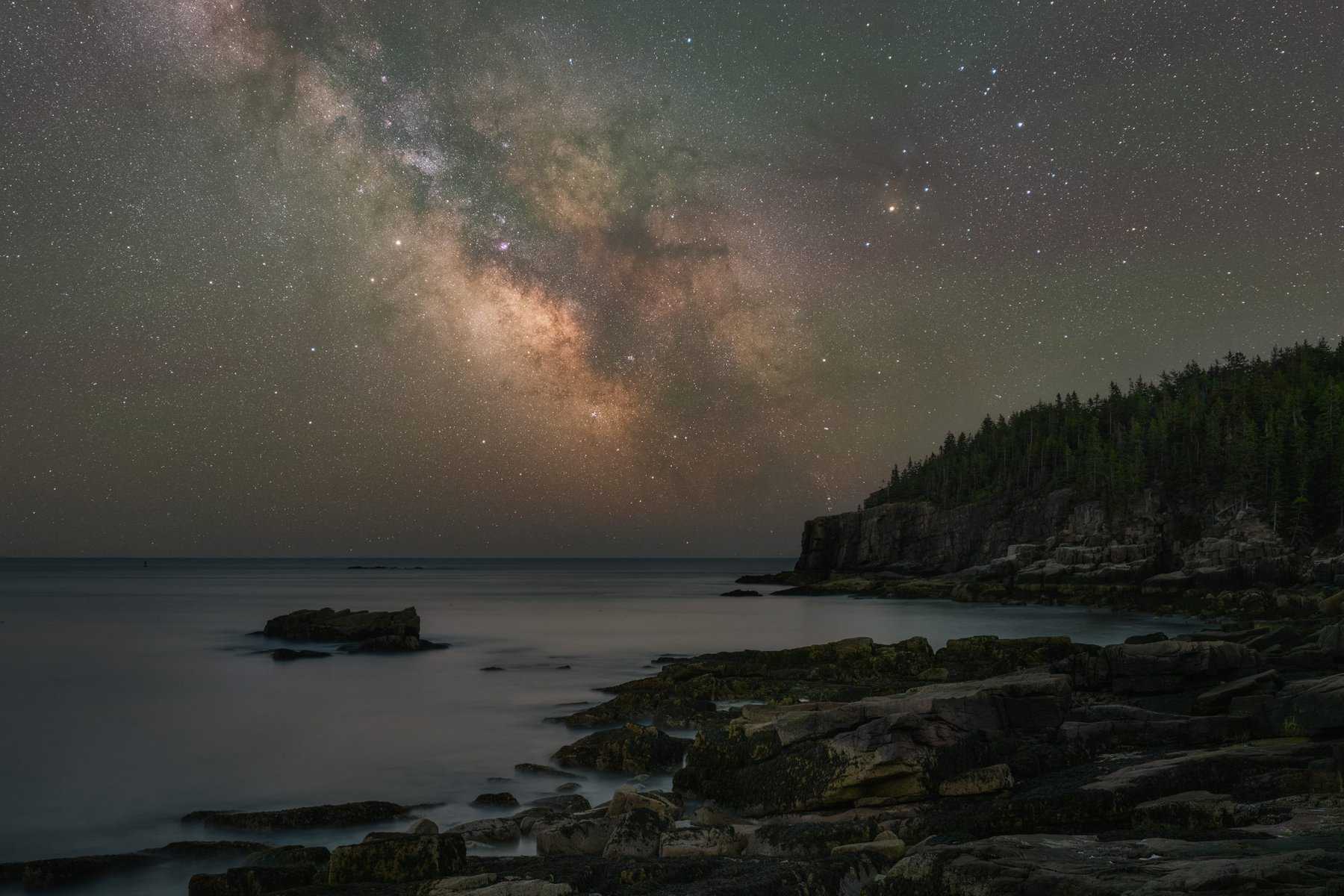Acadia National Park, situated on Mount Desert Island in Maine, is known for its breathtaking landscapes and natural wonders. While the park’s stunning vistas and diverse wildlife captivate visitors during the day, the magic doesn’t end when the sun sets.
Acadia National Park also offers a remarkable stargazing experience. It invites visitors to escape the glow of city lights and embrace the beauty of the night sky.
We invite you to explore the enchanting world of stargazing in Acadia National Park and discover the wonders that await after dark!
Stargazing in Acadia: Dark Skies and Ideal Conditions
One of the most remarkable aspects of Acadia National Park is its commitment to preserving the darkness of the night sky. The park is designated as an International Dark Sky Park, ensuring minimal light pollution and providing optimal conditions for stargazing.
A “dark sky park” refers to a designated area, typically a park or nature reserve, where measures are taken to preserve and protect the darkness of the night sky. These parks are specifically designated to minimize light pollution and provide optimal conditions for stargazing and astronomy.
Dark sky parks are chosen based on their location away from urban areas, low levels of artificial light, and the presence of clear skies. They often implement lighting regulations to control and reduce unnecessary artificial light.
By minimizing light pollution, dark sky parks create an environment where the night sky can be enjoyed in its full glory, allowing for better visibility of stars, planets, and other celestial objects. These parks also serve as educational and recreational spaces, offering astronomy programs, night sky tours, and opportunities for visitors to connect with the wonders of the universe.

With its remote location and limited artificial lighting, Acadia National Park offers visitors a chance to immerse themselves in an unobstructed view of the stars.
Prime Stargazing Locations
Within Acadia National Park, there are several prime locations for stargazing that offer unobstructed views and optimal conditions.
The summit of Cadillac Mountain, the highest peak on the East Coast of the United States, is a popular spot for stargazers. The best month of the year to access Cadillac Mountain during the night is November. Visitors must have reservations to access this area from April-October, and the road is closed due to winter conditions from December until mid-April. Its elevation provides a vantage point above the surrounding landscape, allowing for panoramic views of the night sky.
Jordan Pond, with its tranquil waters and serene atmosphere, also offers an idyllic setting for stargazing.
If you are a water-lover or a photographer, using the beaches of Acadia as backdrops to your stargazing can be breathtaking. While none of the beaches is officially designated as “dark sky beaches,” the park’s secluded coastal areas away from significant light sources can offer impressive night sky views. Here are a few beaches in Acadia National Park that are worth considering for stargazing:
- Sand Beach: Located on the eastern side of Mount Desert Island, Sand Beach offers a beautiful coastal setting and relatively dark skies. Its location away from major towns and minimal artificial lighting make it a suitable spot for stargazing.
- Ocean Path: Located near Sand Beach, this no-reservations-required vantage point offers excellent opportunities for stargating in Acadia.
- Echo Lake Beach: Situated on the western side of Mount Desert Island, Echo Lake Beach is known for its tranquil atmosphere and scenic beauty. With its remote location and minimal light pollution, it can provide a decent spot for stargazing. Set up your blanket on the sandy beach, away from any artificial lights, and enjoy the dark skies above.
- Seawall Campground: Located adjacent to the beach on the western side of the island, this location offers comfortable picnic tables and stargazing-from-your-tent opportunities! Consequently, this is our favorite spot to stargaze in Acadia, especially if you have kids in tow. Book a campsite, and bring your telescope!
- Seal Harbor Beach: Located on the southeastern side of Mount Desert Island, Seal Harbor Beach is a lesser-known gem within Acadia National Park. This secluded beach offers a serene environment and relatively darker skies, providing an opportunity to appreciate the stars away from the bustling tourist areas.
Remember that the best stargazing experiences require optimal weather conditions, clear skies, and minimal moonlight.
Notice that some of the best places for stargazing are also the best for viewing the sunrise. Read more about how to catch the best sunrise in Acadia National Park!
Tips for an Unforgettable Stargazing Experience
To make the most of your stargazing adventure in Acadia National Park, here are a few tips to keep in mind:
- Check the Moon Phase: The moon’s brightness can affect visibility, so consider planning your stargazing outing during a new moon or when the moon is in its crescent phase for darker skies.
- Dress for the Occasion: Even in the summer months, temperatures can drop significantly at night. Be sure to dress in layers and bring warm clothing to stay comfortable while enjoying the night sky.
- Bring Essential Gear: A flashlight with a red filter can be handy for navigating in the dark without disrupting your night vision. Consider bringing a comfortable chair or blanket to sit or lie down on while gazing at the stars.
- Use Stargazing Apps: There are numerous smartphone apps available that can help you identify constellations, stars, and planets in the night sky. These apps can enhance your stargazing experience by providing valuable information and insights.
- Bring A Telescope: If stargazing in Acadia is on your priority list, consider investing in a portable telescope with a carrying case like THIS. We always travel with our telescope!
- Join a Guided Stargazing Program: Acadia National Park occasionally organizes stargazing programs led by knowledgeable astronomers. These programs provide educational opportunities and guidance to help you make the most of your stargazing experience.
Preserving the Night Sky

As you embark on your stargazing adventure in Acadia National Park, remember the importance of preserving the night sky for future generations. Minimize the use of artificial light sources, be mindful of your impact on the environment, and leave no trace of your visit.
By respecting the park’s dark sky initiatives, you contribute to the preservation of this natural wonder and ensure that others can continue to enjoy the splendor of the night sky.
Unveil the Beauty of the Night Sky in Acadia
Stargazing in Acadia National Park is a captivating and humbling experience that allows you to reconnect with the vastness of the universe. Whether you’re an amateur astronomer, a nature enthusiast, or simply someone seeking a moment of tranquility, the park’s dark skies provide an opportunity to witness the marvels of the cosmos.
So, plan your visit to Acadia National Park, set aside an evening, and prepare to be awestruck by the brilliance of the night sky!

